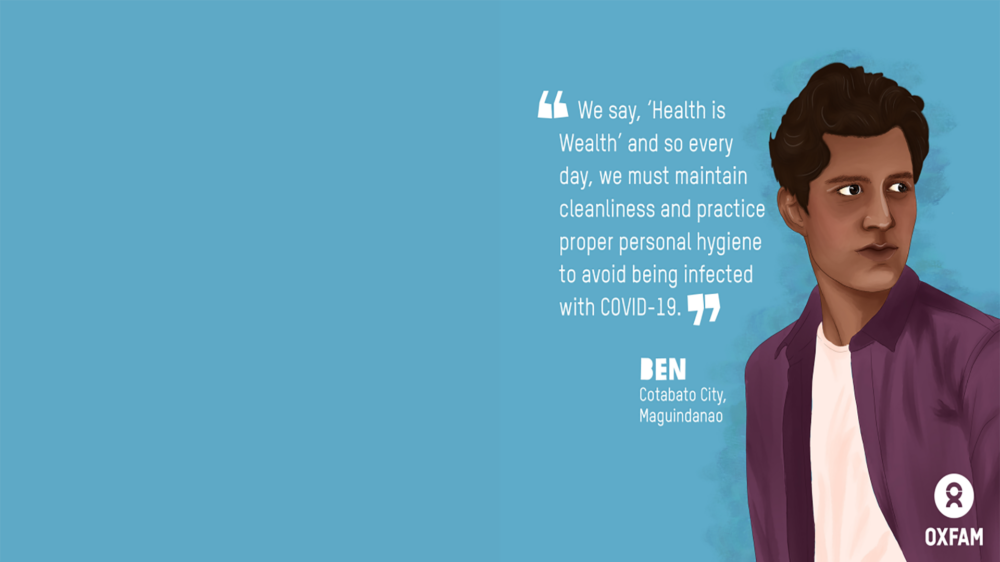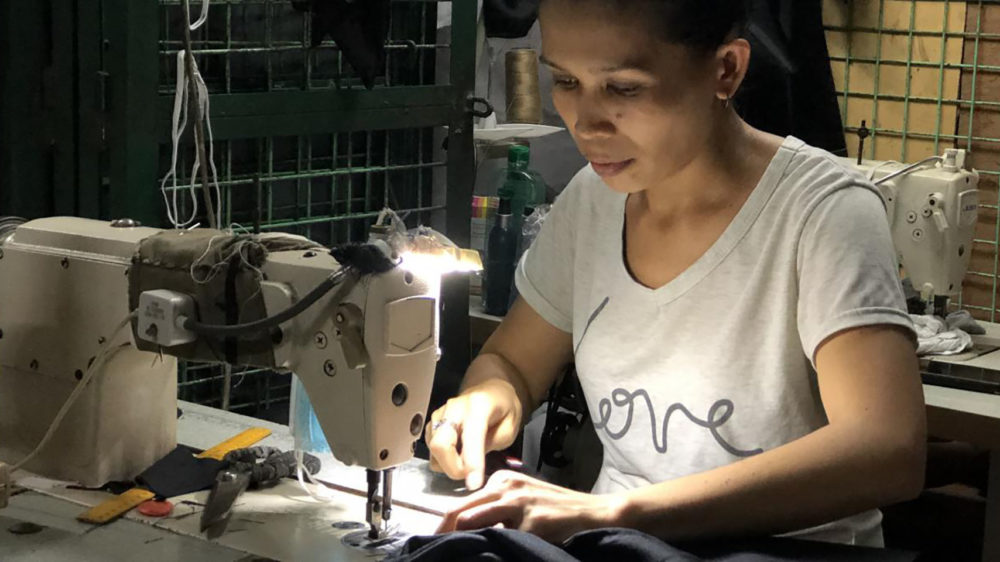Blog post by Ana P. Santos
More from Ana P. Santos

(Photo: Ana P. Santos)
The secret to selling fruits is making your customers laugh.
“When a customer asks me if the mangoes are sweet, I tell them that it is so sweet that it will make you forget your husband,” laughed Jane Viernes, whose easy smile and witty comebacks make her a favorite fruit vendor at the Kamuning Public Market.
The playful banter keeps the customers coming and the sales rolling. “People come in to buy as early as 5AM. At night, customers drop by to get some fruits before heading home,” said the 22-year-old.
The two fruit stalls owned by her boss could turn in about P30,000 ($600) a day in sales. It’s enough for Jane’s boss to give her modest accommodations on top of her monthly salary of P6,000 ($120). Jane sends almost all of her salary to her parents in the province, leaving just about $20 for herself. “That’s enough for my shampoo, soap, cellphone load and a little extra.”
As an essential service, their fruit stall was allowed to stay open during the lockdown meant to slow the spread of COVID-19, but it wasn’t the same. Jane wasn’t so chatty with the few customers that still came in to buy. They were all in a hurry. They didn’t turn the fruits around in their hands or smell them before buying. No one stopped to take their photo in front of the apples, oranges and bananas that Jane carefully arranged every morning to display their colors.
And it was awkward. Money was exchanged using only the thumb and forefinger.
COVID-19 diminished the joy Jane got from selling and it also slashed the store’s income. Daily sales are down to $100 a day–sometimes even less.
Jane encouraged her boss to enroll their stall into the Community Mart program initiated by the Office of the Vice President Leni Robredo so they could still sell to customers online. Nearby residents can order fruits, vegetables, and meat from the Kamuning Market vendors through an application and have their purchases delivered to their doorstep.
The Community Mart program links Kamuning Public Market vendors directly to their customers and the delivery service gives drivers of motorized rickshaws (known as tricycles) like Philip Alberga a source of livelihood.
In the first week of its pilot run, the Kamuning Public Market generated over P500,000 ($10,000) in sales.
Philip lost his income when all public transportation was suspended because of quarantine measures declared last March. Philip, who is president of the Tricycle Operators and Drivers’ Association (TODA) in Kamuning, said that all of the 100 members found themselves suddenly jobless.
It was a stark difference to the days before the lockdown when Philip said that just by ferrying market goers rushing to get the freshest seafood and vegetables, he could make his P300 daily boundary even before the sun came up.
When the influx of market shoppers would die down, it would be time for school. Rickshaw drivers like Philip would squeeze in four passengers at a time so the kids could divide the P40 ($.80) fare amongst themselves. “That way it’s not so costly for the students and the trip is still worthwhile for us drivers.”
Philip could end his day at around 4PM with P1,000 ($20) a day, nearly double the minimum wage.
Through the government’s social assistance program, Philip received P8,000 ($150) during the first month of the quarantine. He used it to pay his rent, water, and electricity. The government declared a moratorium on rent collection but he didn’t want debts to pile up. “I still need to pay for it a few months from now and who knows what the situation will be like then,” he said.
Philip had seen how badly the pandemic had hit the other drivers of the bigger public utility vehicles like jeepneys and buses. “At least we rickshaw drivers can detach the side carriage and use the motorcycle to make deliveries. We could still make some money. It’s been really hard for the other drivers.”
The Community Mart has given Philip and other drivers an alternative form of income but daily earnings are down to about P300 ($15). The lost income makes itself felt on his family’s food plate. “We eat mostly sardines and eggs now. Before we could still afford to have pork every once in a while.”
Philip knows that his going out to make deliveries exposes him to getting infected by COVID-19 and bringing it home to his children. He takes precautions by first stripping off his outer clothes, leaving them outside his house and taking a bath before going inside to be with his family.
The coming rainy season which brings floods and water-related diseases like dengue and leptospirosis will make it more difficult to prevent getting sick, but Philip just shrugged his shoulders. “I have to go out and work. If I don’t my kids’ stomachs will start grumbling from hunger and I can’t have that.”



